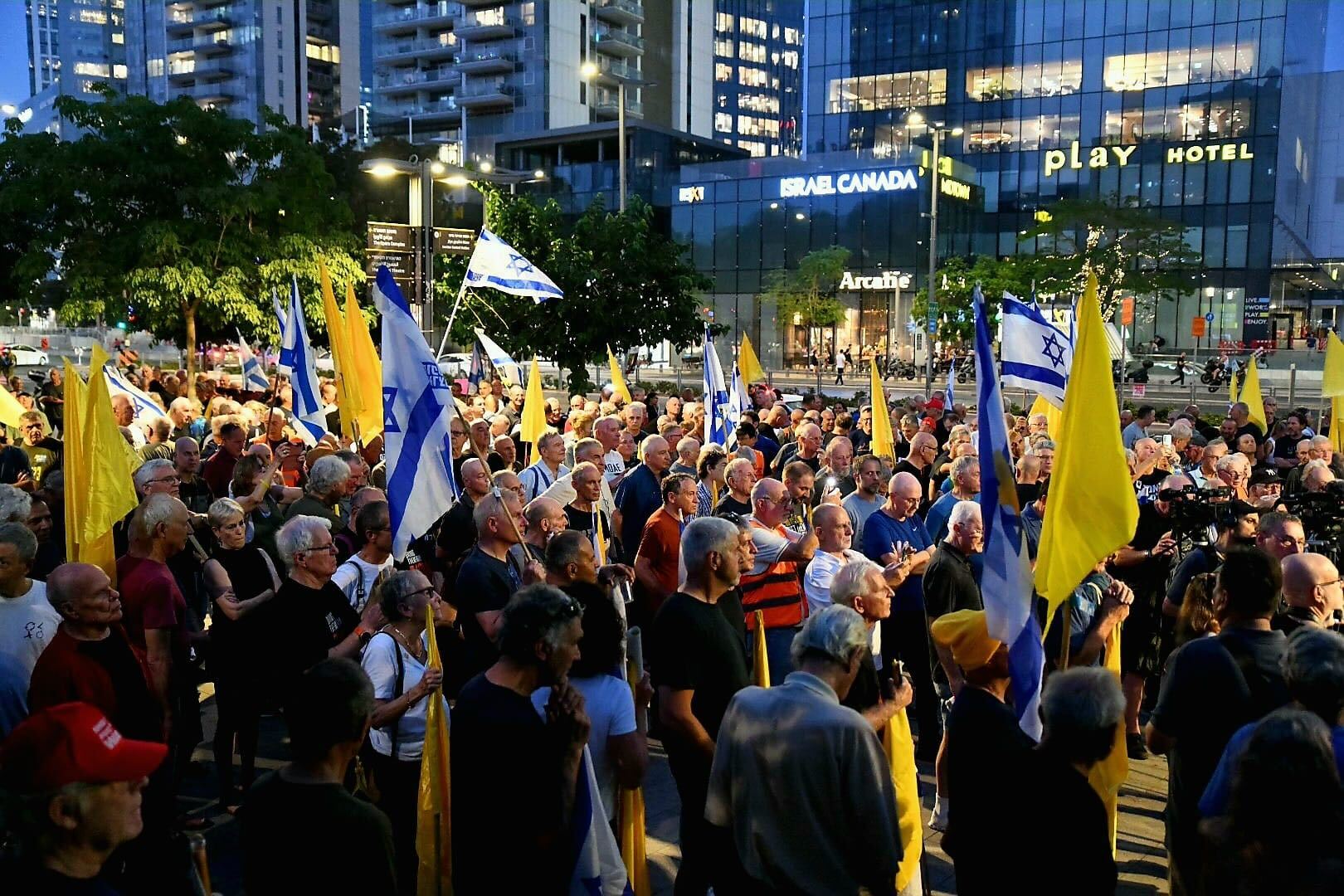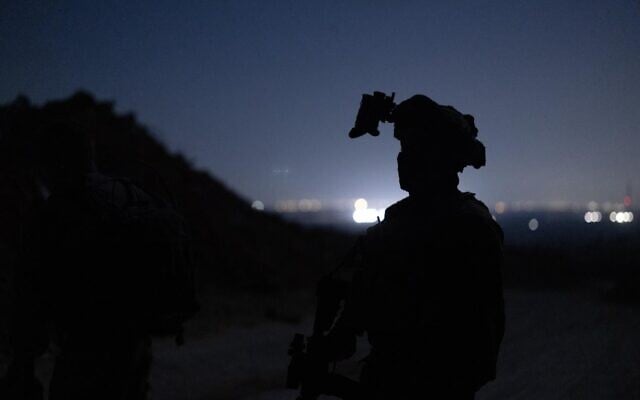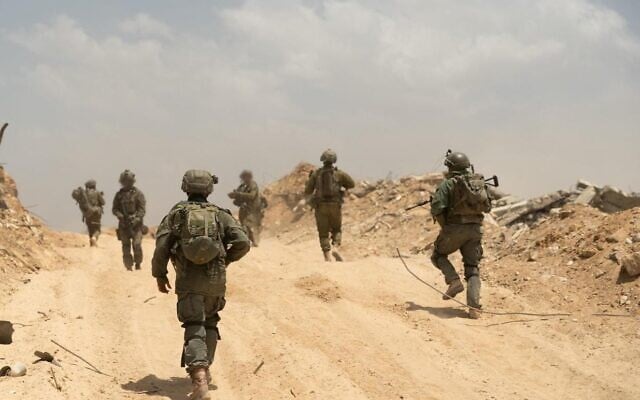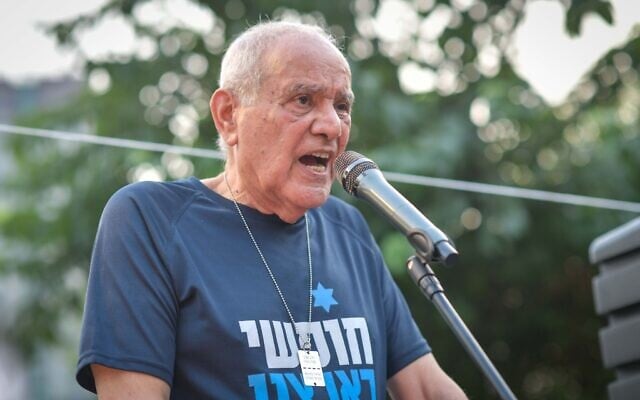



As Israel seeks to expand its offensive in Gaza, a measure of how the country’s mood has changed in the nearly two-year-old conflict is the discontent evident among some reservists being called up to serve once again.
Shortly after the October 7, 2023, onslaught in southern Israel by Palestinian terror group Hamas, Israelis dropped everything — honeymoons, studies and new lives abroad — to rush home and fight.
Now, some voices are disillusioned with political leaders sending them back into battle, as the military prepares to take control of Gaza City, the enclave’s biggest urban center.
According to a study conducted by Agam Labs at the Hebrew University that measured sentiment about the new campaign among more than 300 people serving in the current war, 25.7 percent of reservists said their motivation had decreased significantly compared with the start of the campaign.
Another 10% said their motivation slightly decreased.
Asked to describe their feelings about the campaign, the biggest group — 47% — of responders expressed negative emotions toward the government and its handling of the war and hostage negotiations.
While the Israel Defense Forces experienced an unprecedented 120% turnout rate for reservists on October 7, current participation is less than half that, according to the military. The decline stems from exhaustion and economic hardship after months of repeated call-ups, anger over Haredi draft exemptions, and a loss of trust in the government.
Prime Minister Benjamin Netanyahu vowed to destroy Hamas after it attacked Israel on October 7, 2023, in the bloodiest single day for Jews since the Holocaust, killing some 1,200 people and taking 251 hostages to Gaza.
But the war has dragged on, with Hamas still putting up a fight and many condemning the premier for failing to reach a deal with the terror group to secure the release of the remaining 50 hostages despite many mediation efforts.
Reservists were among thousands of Israelis who took part in a nationwide strike on Sunday, one of the biggest protests in support of families of hostages, calling on Netanyahu to reach an agreement with Hamas to end the war and release the remaining captives.
One of those angry protesters was Roni Zehavi, a reservist pilot who stopped serving out of principle after more than 200 days of service when the last ceasefire fell through in March.
He said that when reservists were enlisted, they did everything required without saying a word. But then questions such as “where is this going?” started to pop up, he recalled.
The protesting reservists accused the government — the most right-wing in Israel’s history — of perpetuating the war for political reasons.
“This war is entirely political; it has no goal except to keep Benjamin Netanyahu as prime minister,” he told Reuters.
“He is willing to do everything necessary — to sacrifice the hostages, fallen soldiers, dead citizens — to do what he needs so that he and his wife will stay in power. It’s the tragedy of the State of Israel, and it’s the reality.”
Asked for comment about the disenchantment voiced by some reservists, the Israel Defense Forces said it sees great importance in the reserve service and each case of absence is examined.
“In this challenging security reality, the contribution of the reservists is essential to the success of missions and to maintaining the security of the country,” it said.
The Prime Minister’s Office was not immediately available for comment.
Netanyahu has so far resisted calls to establish a state commission of inquiry — in which he could be implicated — into the security, strategic and intelligence failures surrounding the October 7 attack. He has said such an investigation should not be launched as long as the war is still underway. Some of his far-right coalition partners have threatened to bring down the government should the war end without meeting all its stated goals, including destroying Hamas.
When 287,000 reservists were called up after the October 7 attack, the largest such compulsory mobilization since the 1973 Yom Kippur War, it received an enthusiastic response.
The mood among some reservists appears different now.
“I will not be part of a system that knows that it will kill the hostages. I’m just not prepared to take that. And I really fear that, to the point where it keeps me up at night,” one combat medic told Reuters. He asked not to be identified as he was not authorized to speak.
Israel’s toll in the ground offensive against Hamas in Gaza — the country’s longest conflict since the 1948 War of Independence — and in military operations along the border with the Strip stands at 459. The toll includes two police officers and three Defense Ministry civilian contractors.
The Hamas-run Gaza health ministry says more than 62,000 people in the Strip have been killed or are presumed dead in the fighting so far, though the toll cannot be verified and does not differentiate between civilians and fighters. Israel has said many of them were combatants and that it seeks to minimize civilian fatalities, stressing that Hamas uses Gaza’s civilians as human shields, fighting from civilian areas including homes, hospitals, schools and mosques.
Military service is mandatory in Israel, which has a population of around 10 million and relies heavily on reservists in times of crisis. Reserve duty is technically mandatory, though penalties for evasion often depend on the willingness of the direct commander to enforce punishment.
Reuters interviewed 10 Israeli reservists for this story.
Like many other reservists, special forces Sgt. Maj. A. Kalker believes that Israel’s military and political leadership has failed to formulate a sound day-after plan for the war.
“There’s a lack of vision, both in the political and the senior military leadership, a real lack of vision,” he said, but added that shouldn’t amount to refusing to serve.
“Bibi is the king of not making decisions… like treading water,” he said, using Netanyahu’s nickname.
Reservist Brig. Gen. Roi Alkabetz told Reuters that the military and IDF Chief of Staff Lt. Gen. Eyal Zamir had transitioned to using the reservists in a “measured way,” because Zamir understood the hardship for reservists and had put much of the hard work on soldiers in mandatory service.
“He’s doing it in a logical way,” Alkabetz said. “The reservists will come.”
JTA contributed to this report.



